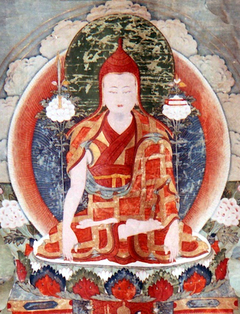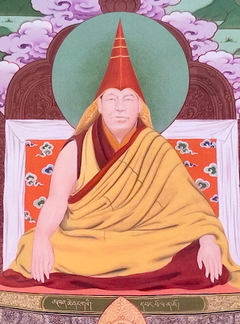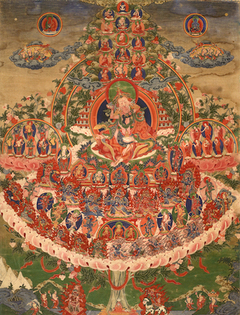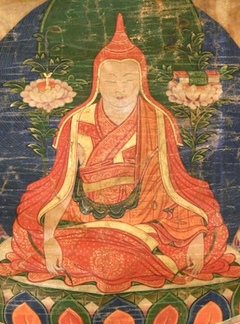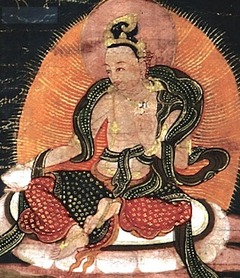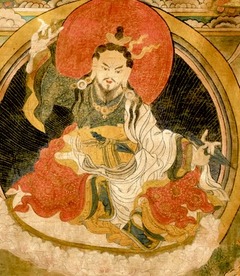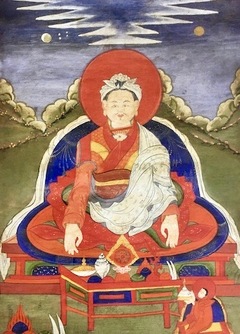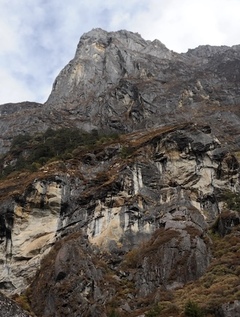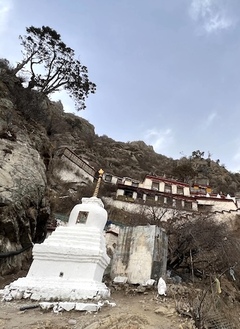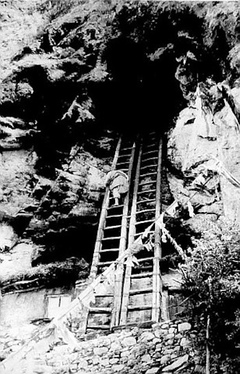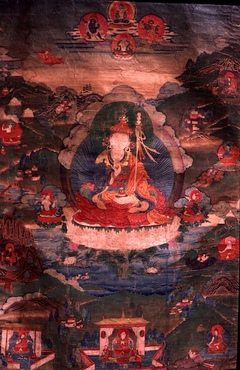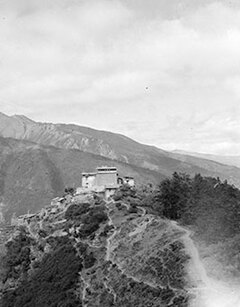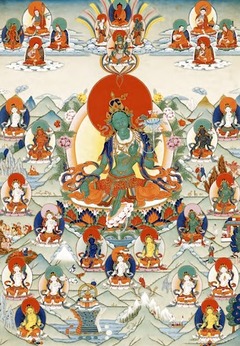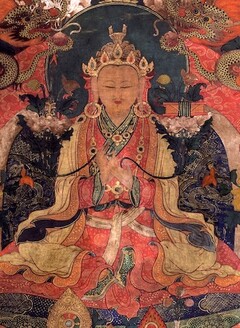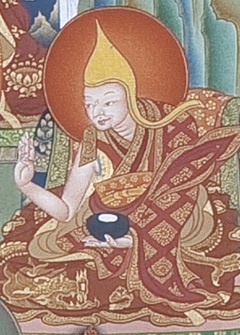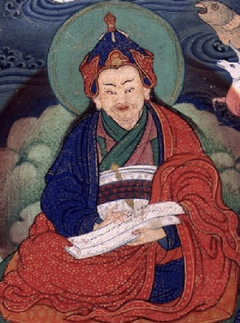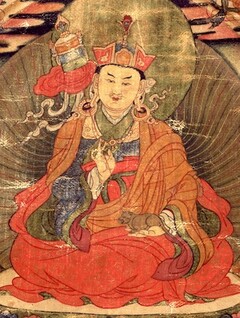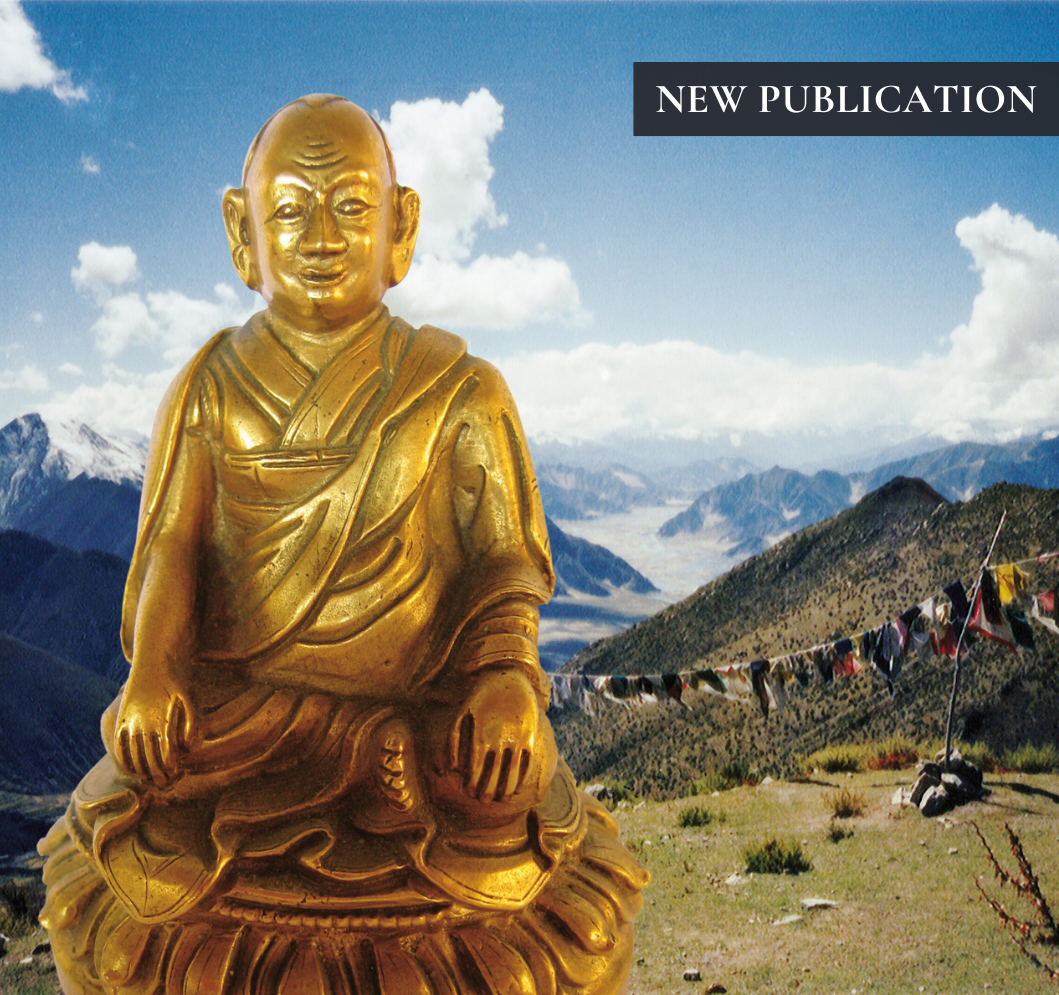
This short text was written in Hong Kong following the author's commissioning of one thousand and twenty-five portrait statues of Longchen Rabjam in 1992 and provides a history of the various statues of Longchenpa that have existed from the master's own lifetime to the present day.
Verses for invoking the blessings of Longchen Rabjam (1308–1364) as a means of overcoming mundane concerns and recognising primordial freedom and awakening.
In this originally untitled prayer of confession, addressed to the Three Roots, Khenchen Ngawang Palzang provides a comprehensive list of failings and breakages of vows to be admitted and purified.
Extracted from A Collection of Various Liturgies, Including the Common and Uncommon Preliminary Practices, here are the common and uncommon preliminary practices of the Longchen Nyingtik, together with supplementary recitations such as the blessing of speech, the calling of the guru from afar and the bodhisattva vow. These are key elements that feature in Dodrupchen Jigme Trinlé Özer's Longchen Nyingtik Ngöndro compilation but also Patrul Rinpoche's arrangement of the bodhisattva vow.
Verses of praise to the gurus associated with the secret cycle of the Zabmo Yangtik, from Samantabhadra down to Mentsewa Lodrö Gyaltsen.
A catalogue for the printed edition of the Khandro Nyingtik commissioned by Prince Damtsik Dorje (1811–1852/53) of Derge. Although no date is provided, the publication likely dates from around 1830.
These verses of profound, nuanced advice on meditation, addressed to a nun named Chötso, will be of relevance and benefit to any longtime meditator.
Other recent additions
Some notes on the four ways of leaving things as they are (cog bzhag bzhi): (1) view, like a mountain: leave it as it is; (2) meditation, like an ocean: leave it as it is; (3) conduct, oral instructions: leave them as they are; and (4) fruition, awareness: leave it as it is.
One of eight such texts, each covering a particular site associated with the Kagyé, this is in praise of Sengé Dzong, where Yeshe Tsogyal meditated on Vajrakīlaya.
One of eight such texts, each covering a particular site associated with the Kagyé, this is in praise of Namtso Lake, where Langchen Palgyi Sengé meditated on Jikten Chötö.
One of eight such texts, each covering a particular site associated with the Kagyé, this is in praise of Drakmar Yamalung, where Vairotsana meditated on Möpa Drak-Ngak.
One of eight such texts, each covering a particular site associated with the Kagyé, this is in praise of Yarlha Shampo, where Palgyi Yeshe meditated on Mamo Bötong.
One of eight such texts, each covering a particular site associated with the Kagyé, this is in praise of Drak Yangdzong, where Nub Sangye Yeshe meditated on Yamāntaka.
One of eight such texts, each covering a particular site associated with the Kagyé, this is in praise of Yarlung Sheldrak, where Nyak Jñānakumāra meditated on Amṛtakuṇḍalī.
Verses in praise of nine custodians of the Kagyé teachings: Sangye Yeshe, Gyalwa Chokyang, Namkhé Nyingpo, Jñānakumāra, Yeshe Tsogyal, Palgyi Yeshe, Langchen Palseng, Vairotsana, and Tri Songdetsen.
One of eight such texts, each covering a particular site associated with the Kagyé, this is in praise of Samyé Chimpu, where Gyalwa Chokyang meditated on Hayagrīva.
One of eight such texts, each covering a particular site associated with the Kagyé, this is in praise of Lhodrak Kharchu, where Namkhé Nyingpo meditated on Yangdak Heruka.
This short poem in praise of the most iconic animal of the Tibetan plateau is notable for its awe-inspiring imagery and apparent lack of explicitly Buddhist terminology or themes.
This short practice of invoking Tārā to swiftly accomplish all aims, remove obstacles, and protect from dangers belongs to the Tārā Who Dispels All Fears (sgrol ma 'jigs pa kun sel) subcycle, part of the Tukdrup Barché Kunsel within the Chokling Tersar.
Latest Topic Introduction
A brief historical introduction to the collections known as the Ten Royal Sūtras (rgyal po'i mdo bcu) and Five Royal Sūtras (rgyal po'i mdo lnga), which are said to have been translated upon the advice of Padmasambhava for Emperor Tri Songdetsen's daily recitation.
Highlights from Archive
Extracted from The Sunlight of Eloquent Explanation: A Presentation of Exposition, Debate, and Composition ('chad rtsod rtsom gsum gyi rnam gzhag legs bshad nyin byed snang ba), this brief analysis discusses the qualities of an author, classifications of literary treatises and process of composing a treatise.
One of the better known instructions from the collection known as Responses to Questions, Advice from the Guru's Direct Instructions (bla ma dmar khrid kyi zhal gdams zhus lan skor), which is included in the Precious Treasury of Revelations (Rinchen Terdzö). The text contains simple advice from Guru Padmasambhava for his elderly disciple, Ngok Sherab Gyalpo.
Featured Topic
A selection of texts on the theme of wealth and prosperity including rites for summoning the spirit of prosperity or abundance (g.yang 'gugs).
24 texts
* Lotsāwa ལོ་ཙཱ་བ་; lo tsā ba n. Title used for native Tibetan translators who worked together with Indian scholars (or paṇḍitas) to translate major buddhist texts into Tibetan from Sanskrit and other Asian languages; it is said to derive from lokacakṣu, literally "eyes of the world". See also paṇḍita.
Lotsawa House is registered in the UK as a Community Interest Company (#14358325), a category of company which exists primarily to benefit a community or with a view to pursuing a social purpose, with all profits having to be used for this purpose.

